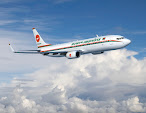Bangladesh is slowly emerging to
become one of the next big economic powers in the world. And the reason behind
the growth of Bangladesh’s
economy is the successful corporate groups. Some big names in the business
sector of Bangladesh is not
just making their names known in Bangladesh, they are making their
presence known throughout the world. Here are brief descriptions of five top
business groups in Bangladesh:
SQUARE
Group - SQUARE
Group is one of the oldest and most successful companies in Bangladesh. It
was formed by the legendary entrepreneur Samson H Chowdhury
and three of his
friends. SQUARE became the largest pharmaceuticals company of the
country from
a tiny pharma company. The other businesses are SQUARE
Toiletries, Spinning, SQUARE Knit Fabrics, Informatix and Consumer
Products. SQUARE Hospital, run by the group is one of the most
state-of-the-art
hospitals of Bangladesh.
Bashundhara Group- Bashundhara Group has achieved remarkable success in the real estate sector of Bangladesh. They started as a real estate and construction company and soon they expanded their business to paper, tissue paper, steel, LP gas, cement, toiletries and electronic and print media. Bashundhara Model Town is the largest private residential model town in Dhaka city. Bashundhara City Shopping Mall is the largest shopping mall in South Asia. The paper produced in Bashundhara Paper Mills is the most demanded paper in Bangladesh.
Bashundhara Group- Bashundhara Group has achieved remarkable success in the real estate sector of Bangladesh. They started as a real estate and construction company and soon they expanded their business to paper, tissue paper, steel, LP gas, cement, toiletries and electronic and print media. Bashundhara Model Town is the largest private residential model town in Dhaka city. Bashundhara City Shopping Mall is the largest shopping mall in South Asia. The paper produced in Bashundhara Paper Mills is the most demanded paper in Bangladesh.
BEXIMCO
Group- BEXIMCO
Group was formed by two of the greatest business minds of Bangladesh- Salman F Rahman and Sohail F Rahman. They started as a trading company and over the last
four decades they expanded their business into and became a dominating force in
the economy of Bangladesh.
The various business sectors of BEXIMCO are real estate, pharmaceuticals,
textiles, IT, marine food, power and energy, media, ceremics, trading,
aviation, financial services and hospitality. Currently, they are the largest
group in Bangladesh
with about 48,000 employees.
Abul Khair
Group of Companies- When
it comes to entirely local brands, Abul Khair Group of Companies is definitely
one of the most popular one in Bangladesh.
Abul Khair Group of Companies began their journey almost 60 years ago with the
tobacco industry. Now they are one of the biggest business empires of the
country. Their Condensed Milk and Beverage Industries have created an extremely
high demanding market. Apart from that, they are involved in the tea, coconut
oil, dairy products, steel and real estate business.
Aftab
Group- Aftab Group is one of the pioneers and leaders of the business world of the country.
They have a very successful foreign section as well. Under the world class
entrepreneurial skills of Azharul Islam and Iftekharul Islam, this
group has emerged as the representative of Bangladesh to the outer world. Their
business includes real estate in USA,
textile, CNG, industrial pump, garments, banking and food in Bangladesh.
They have up and running offices all around the world. Their success has put a
very impressive impression of Bangladesh
in the entire world.

that's so great. I am doing research on best Bangladeshi Companies and here I found another good link for Top 10 Best Bangladeshi Companies
ReplyDeleteHP Board Class 10 Result when would be announced
ReplyDelete